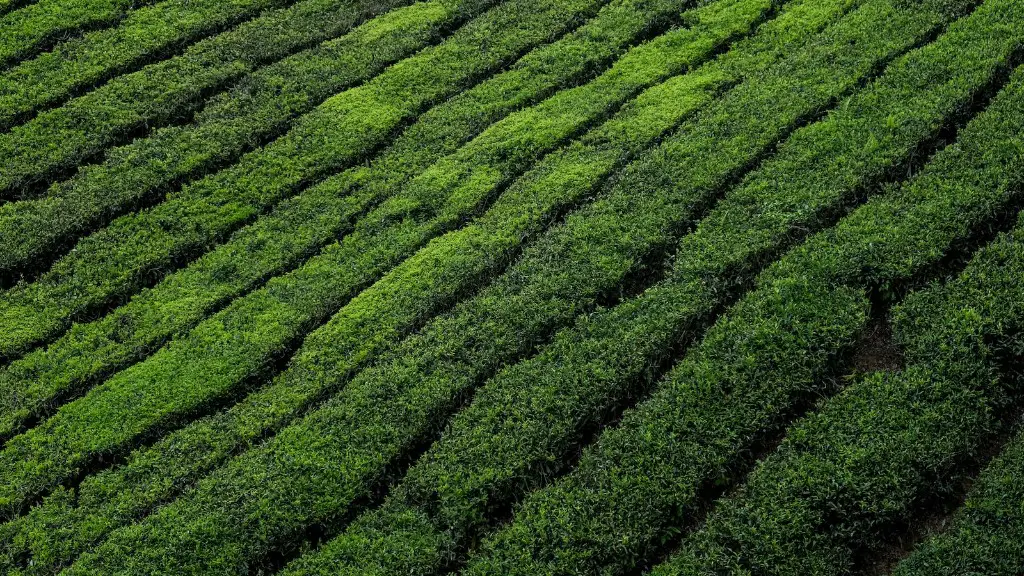Soil is a critical component of successful, sustainable agricultural production. It provides essential nutrients and water, and supports the growth of crops. The right soil is essential to the success of any agricultural crop. The type of soil chosen needs to have specific characteristics, such as good aeration, good drainage, organic matter, adequate nutrients and an appropriate climate. There are a variety of soil types that are considered suitable for agricultural use. To determine which soil is right for your needs, it is important to understand the characteristics of different materials.
Sandy soils are the most common type of soil used in agricultural production. They are highly absorbent of water and nutrients, and therefore require frequent irrigation and fertilization. Sandy soils are best suited for warm-season crops such as corn, squash, melons and beans. Clay soils are much denser than sandy soils and are less water absorbent. They require far less irrigation and fertilization, but due to their inherent density, can become waterlogged quickly. Clay soils are best for cool-season crops such as cabbage, broccoli and potatoes.
Loamy soils are considered an ideal soil type for agriculture. They are a mixture of clay, sand and organic matter; creating a balance between the water absorption qualities of clay and the soil’s exchangeable nutrients. Loamy soils have an appropriate density, creating good soil structure; they are well aerated and drain easily. Loamy soils are suitable for most agricultural crops, including vegetables and grains.
Organic soils are soils that contain a significant amount of organic matter. Organic matter adds important nutrients such as nitrogen, phosphorus and potassium, increasing the soil’s fertility. Organic soils are well aerated, absorb water easily and are well suited for a variety of crops including vegetables, grains and legumes. However, organic material in the soil may need to be replenished periodically, depending on the nature of the crop.
The environment in which the soil is situated also plays an important role in its suitability for agricultural production. For example, a soil in a dry, desert-like climate is not suitable for most crops, while a soil in a wet climate may require drainage modifications before it can be used for agriculture. Additionally, soils with extreme pH levels can be unsuitable for growing crops, and the pH levels can be adjusted with appropriate amendments.
Types of Fertilizer for Different Soils
Different soil types may respond differently to various types of fertilizer. For example, sandy soils often require phosphorus, nitrogen and potash fertilizer in order to produce adequate yields. Clay soils, on the other hand, require less fertilizer, but may need micro-nutrients such as zinc, boron and manganese. Organic soils, which contain naturally occurring nutrients, may benefit from the addition of additional organic matter such as compost or manure.
Soil Management Practices
Successful agricultural production requires the proper management of the soil. Soil management practices can include tilling, tillage, crop rotation, cover cropping and mulching. These techniques can help to prevent nutrient depletion, increase water absorption and control weeds. Additionally, soil management practices can help to prevent soil erosion and improve the soil structure, resulting in healthier plants.
Improving Poor Soil Quality
Poor soil quality can often be improved with the addition of soil amendments. Examples of soil amendments that can improve soil quality include compost, manure, and lime. Compost improves fertility and aeration, while manure can supply essential nutrients. Lime can be added to increase the soil’s pH level. Additionally, soil tests can be used to assess the fertility, pH and other factors of existing soils, and fertilizers and nutrients can be applied as necessary.
Soil Testing
Soil testing is an important tool for determining soil quality and the amount of nutrients needed to support the growth of agricultural crops. Soil tests can assess the texture of the soil, the pH levels, organic matter content, fertility levels and the presence of micro-organisms. Testing should be conducted regularly in order to ensure that the soil is providing adequate nutrition for the crops.
Sustainable Soil Management
Sustainable soil management involves the long-term maintenance of soil health. To do this, steps must be taken to preserve soil structure and reduce nutrient loss due to erosions and leaching. The use of cover crops, mulch and low-tillage farming methods can help to reduce the impacts of soil degradation. Additionally, the use of organic fertilizers and compost can help to improve soil fertility and health.


